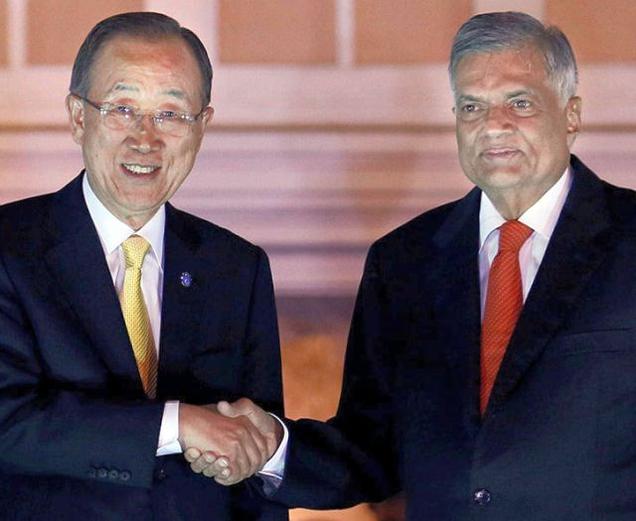
Excluding young people from reconciliation and peace-building processes is one of the most serious social injustices, United Nations Secretary General Ban Ki-moon told a group of young Sri Lankans on Thursday. “Why should young people be sent off to fight wars, but be prevented from building peace?” he asked them at a meeting in Galle, a scenic coastal town in southern Sri Lanka.
Mr. Ban is currently in Sri Lanka on a three-day visit to Sri Lanka, his second after May 2009, days after war ended. At that time, he took an aerial tour of the north to view the extent of destruction and devastation.
Emphasising the need for greater investment in the young women and men, who make up one fifth of Sri Lanka’s population, he said: “Most of you were born and lived your early lives during conflict, terror and displacement. Many of you suffered deprivations and injustice.”
Involvement in peacebuilding, reconciliation and post-conflict transformation provided an opportunity to emerge from this trauma to play a part in creating a better future. A bottom-up approach to peacebuilding, which involves young people and women, is crucial to ensuring sustainable social justice in Sri Lanka, he said.
Following his visit to Galle, in the island’s Sinhala-majority south, Mr. Ban will travel to Jaffna in Sri Lanka’s Northern Province on Friday, to meet Tamil families displaced during the war. He is also scheduled to meet with leaders of the Tamil National Alliance (TNA).
Seven years after Sri Lanka’s brutal war ended, the country is faced with lingering concerns over alleged war crimes and human rights violations. Sections of the civil society have welcomed some of the steps taken by the current government, headed by President Maithripala Sirisena and Prime Minister Ranil Wickremesinghe, towards reconciliation — by way of drafting a new constitution and setting up systems to probe cases of disappearances.
All the same, the island’s northern Tamils await a political solution — something Mr. Ban and former President Mahinda Rajapaksa in 2009 acknowledged as being fundamental to ensuring long-term socioeconomic development. It was following that meeting that Mr. Rajapaksa expressed his resolve to implement the 13th Amendment, which came out of the Indo-Lanka Accord of 1987.
[Source:-The Hindu]



